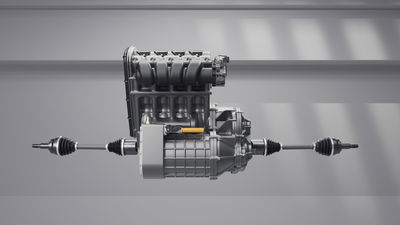700k Ford V6s Covered By NHTSA’s “Catastrophic Engine Failure” Investigation

Ford’s 2.7 and 3.0-litre V6 Ecoboost engines have caught the attention of the National Highway Traffic Safety Administration after it emerged that defects can lead to “catastrophic engine failure”.
It started with a trio of letters sent to the NHTSA's Office of Defects Investigation by customers in early 2022, prompting a probe that expanded in late September 2023 to cover some 700,000 vehicles. These involve the 2021-2022 versions of the Ford Bronco, Explorer, Edge and F-150, and the Lincoln Aviator.

Ford has received 328 customer complaints relating to the two V6 engines in the aforementioned cars, and carried out 487 warranty claims plus 809 engine exchanges. “The provided data is comprised of reports of engine failure resulting in several consequences, the most common of which being loss of motive power while the vehicle is in motion,” the NHTSA said.
The investigation found that “multiple contributing factors” can “lead to the fracturing of the intake valves in the subject engines”. It’s this that “can result in catastrophic engine failure”. When this happens, “a vehicle typically requires a full engine replacement”. Well, yeah.

It’s all down to the material used to make the valves, called ‘Silchrome Lite’. If it gets too hot during manufacture, it can get “excessively hard and brittle”. Ford changed the material used for the valves in October 2021 to Silochrome 1, which stands up better to heat when being machined.
Ford says the bad valves typically fail early on, so it reckons most of the failures have already happened.
A Ford spokesperson told Automotive News that the manufacturer was "working with NHTSA to support their investigation."















Comments
No comments found.